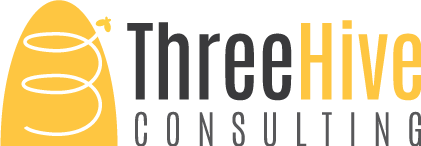Edmonton Community Legal Centre
We worked with ECLC to build their own evaluation capacity
The Edmonton Community Legal Centre (ECLC) has been supporting communities with legal services for over 50 years. The ECLC provides free legal advice, advocacy, information, referral, and support when income poses a barrier to accessing justice.
ECLC operates in four core legal areas: Family Law, Civil Law, Immigration Law, and Social Benefits Advocacy. Across these four legal areas, the ECLC has two primary service streams: an Advice Clinic stream where clients receive up to 45 minutes of legal coaching, and an Open Files Services stream where ECLC lawyers represent clients in all or part of their legal journey.
The Edmonton Community Legal Centre (ECLC) sought to develop an evaluation process that would allow ongoing, in-house monitoring and assessment of the Open File Services workstream, that is, the service stream where ECLC lawyers represent clients in all or part of their legal journey. ECLC wanted to know what impact their services had on clients, what the client experience was, and how they could uncover operational efficiencies or improvements.
Understand
We convened a small advisory group from ECLC staff to help us understand the purpose of the evaluation and what questions they had. Together, we crafted three key outcomes that shaped the evaluation:
Clients obtain access to the justice system, civil liberties and equal protection and intended benefit from the law
Open File Services has a positive impact on clients and staff
Clients’ experience with Open File Services is a positive one
ECLC wanted the ability to continue evaluating their work after Three Hive’s involvement, using their own volunteers and staff so that they could monitor changes and trends in their services.
Uncover
We gathered data from multiple sources to answer the key evaluation questions, while also working closely with ECLC to build their capacity for ongoing evaluation and monitoring. We spent time pilot testing and adapting the evaluation process we created for them to ensure that it integrated into the existing workflows at ECLC, while also using a trauma-informed approach to reduce risks for clients.
We gathered historical administrative data to uncover patterns; and we connected with clients, staff, and community partners to understand a range of perspectives on ECLC’s services.
We built a comprehensive evaluation toolkit, which included resources, training videos, and templates to help ECLC staff evaluate their own work. The toolkit included an auto-populated dashboard to help ECLC visualise their evaluation data, a quarterly report template, and a list of reflective questions to promote the sharing, use, and mobilization of learnings.
Utilize
We love a good data party! We invited representatives from across departments at ECLC to come together to review and discuss the key findings that would inform the final recommendations from Three Hive. Data parties help to add context, explain anomalies, and generate feasible recommendations.
The final results from the evaluation were shared in a succinct report. ECLC plans to use the recommendations for operational efficiencies and help to ensure all ECLC staff use the same considerations when opening a client file and documenting the outcomes of those files. ECLC now has the training materials and documentation that staff can use to continue the evaluation of ECLC’s services on their own.

